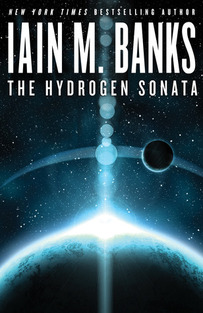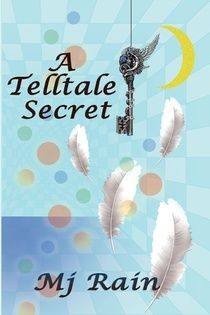
It's quite fitting, in a way, that the last science fiction novel Iain Banks would write was about the end of an entire civilisation. He made it pretty clear that he didn't want to write a story about the end of the Culture itself - they're determined to keep going for as long as they possibly can - but in writing about a "cousin" civilisation to the Culture choosing to call it a day, The Hydrogen Sonata achieves a feeling of finality that seems very appropriate to its status as the end of the series.

The Culture isn't keen on the idea, and many of the Minds within it view Subliming as essentially disappearing up one's own fundament, but the Gzilt, a species who almost ended up being a member of the Culture, are beginning their final preparations for it at the start of the novel. Predictably, things happen which could imperil the Subliming or convince people not to go through with it, and so begins a galaxy-spanning adventure to try and find out what actually happened 10,000 years ago when the Culture was first put together.
It was written and published a while before Banks found out about his cancer, but this balancing of the beginnings and ends of societies makes it a great way for the Culture series to end - if not quite as strange a case of life imitating art as his last novel, The Quarry, was about a man dying from cancer. While it's suggested throughout the novel that the Gzilt are rushing to Sublime and are going too early, it's hard to escape the feeling that it's time the Culture itself went down that road.
One of the recurring jokes is that the committee of ship Minds who get together to monitor the situation don't actually accomplish anything - they always decide to see how things pan out before making a decision, right up until the endgame. Compared with how quickly and, occasionally, impulsively previous committees, such as Excession's "Interesting Times Gang" reacted to crises like this one, the reader feels that maybe the Culture is, finally, past its prime.
Fortunately, Banks' writing is anything but and The Hydrogen Sonata is every bit as entertaining, playful and surprisingly optimistic as we have come to expect from his science fiction. For all the bleakness in these books, for all the genuinely horrific things that happen and all the people who die in unpleasant and gruesome ways, there's an inescapable sense that things will, ultimately, work out for the best.
The title itself refers to an almost comically unplayable piece of music which needed an entirely new instrument to be invented to play it properly - an instrument which ideally requires the musician to have four arms, sit within it and prop it up with their own legs. It's an almost Douglas Adams-esque piece of brilliant absurdity, and it ties in nicely with the recurrent motif of music and sound that so defines this book. Banks was a musician himself, and his love of music is very apparent here, from the enormous leviathans of a water world who communicate by singing, to a hollowed-out mountain range that acts like a giant pipe organ when the wind blows.
Science fiction is and always has been a genre of ideas and imagination - if you don't have them, you won't be able to write it. Even after 12 Science Fiction novels spanning 25 years, Banks had no shortage of either when it came time to write The Hydrogen Sonata, and while it's a deeply sad fact that this is the final Culture novel, it's a great note to end on.





 RSS Feed
RSS Feed
